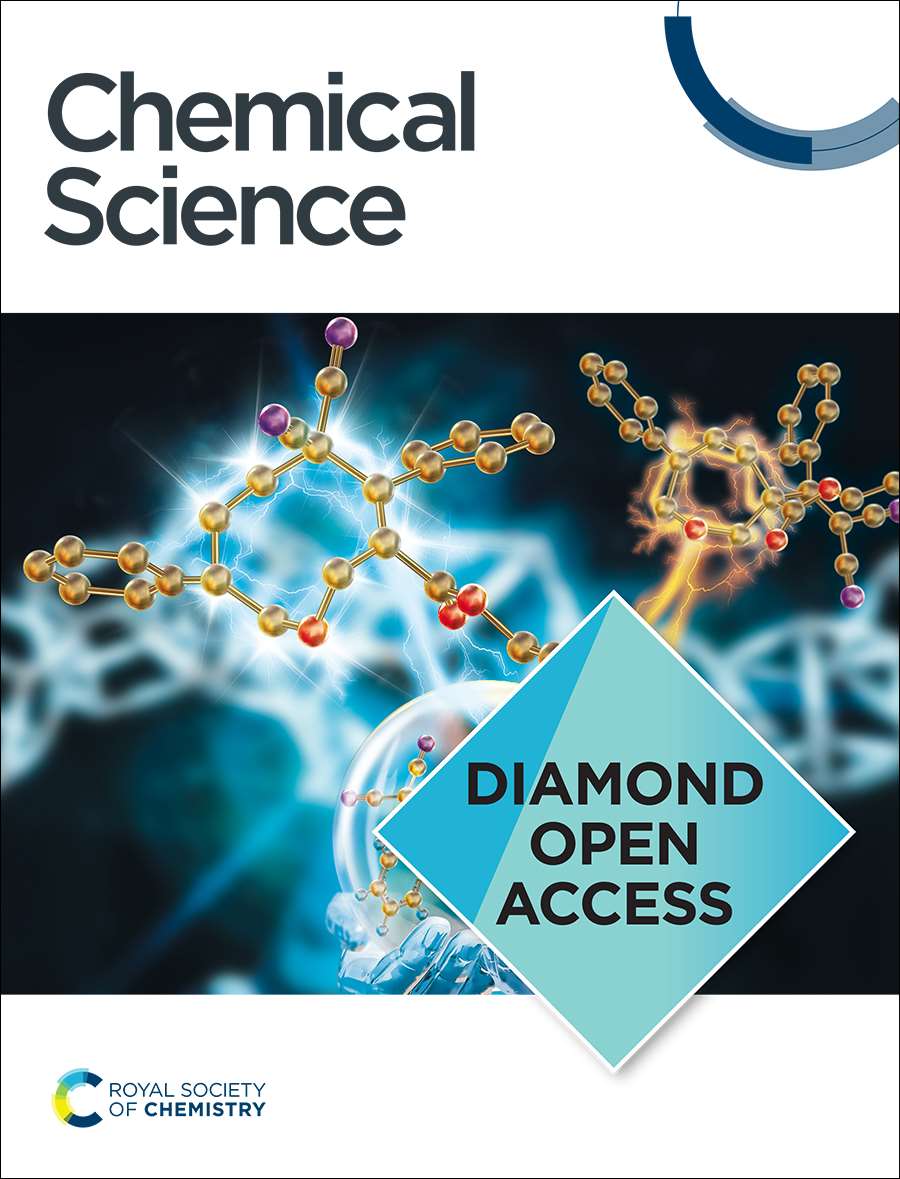Turn-engineering tunes the conformational rigidity of β-hairpin AMPs in achieving membrane selectivity and killing drug-resistant ESKAPE pathogens
IF 7.4
1区 化学
Q1 CHEMISTRY, MULTIDISCIPLINARY
引用次数: 0
Abstract
Naturally occurring β-hairpin antimicrobial peptides (AMPs) exhibit potent membranolytic activity against bacterial and mammalian cells, limiting their therapeutic development due to the lack of selectivity. This study demonstrates that the reverse turn in these AMPs can be used to dictate their molecular rigidity, which drives their membranolytic action. By fine tuning the rigidity at the reverse turn by incorporating a moderately rigid β-II' turn-inducing motif through N-methylation of the amide bond, we achieved selectivity in targeting the bacterial membrane over human red blood cells. The selectivity results from the hairpin-nucleation efficiency of the engineered β-turn within these linear AMPs devoid of disulfide bridges and their interaction with the neutral mammalian and negatively charged bacterial membrane. Such fine-tuning of the structure at the β-turn, allowed us to develop molecules derived from naturally occurring toxic AMPs, which displayed selective killing of drug-resistant bacterial pathogens over mammalian cells with in vivo efficacy.转向工程调节β-发夹amp的构象刚性,以实现膜选择性和杀死耐药ESKAPE病原体
天然存在的β-发夹抗菌肽(amp)对细菌和哺乳动物细胞表现出强大的膜分解活性,由于缺乏选择性,限制了它们的治疗发展。这项研究表明,这些amp的反转可以用来决定它们的分子刚度,从而驱动它们的膜分解作用。通过酰胺键的n-甲基化,通过加入适度刚性的β-II'转向诱导基序来微调反向转动的刚性,我们实现了针对细菌膜而不是人类红细胞的选择性。这种选择性来自于这些线性amp中缺乏二硫桥的工程β-转化的发夹形成核效率,以及它们与中性哺乳动物和带负电荷的细菌膜的相互作用。这种β-转角结构的微调,使我们能够开发出从天然产生的有毒amp衍生的分子,这些分子在体内有效地选择性杀死哺乳动物细胞上的耐药细菌病原体。
本文章由计算机程序翻译,如有差异,请以英文原文为准。
求助全文
约1分钟内获得全文
求助全文
来源期刊

Chemical Science
CHEMISTRY, MULTIDISCIPLINARY-
CiteScore
14.40
自引率
4.80%
发文量
1352
审稿时长
2.1 months
期刊介绍:
Chemical Science is a journal that encompasses various disciplines within the chemical sciences. Its scope includes publishing ground-breaking research with significant implications for its respective field, as well as appealing to a wider audience in related areas. To be considered for publication, articles must showcase innovative and original advances in their field of study and be presented in a manner that is understandable to scientists from diverse backgrounds. However, the journal generally does not publish highly specialized research.
 求助内容:
求助内容: 应助结果提醒方式:
应助结果提醒方式:


